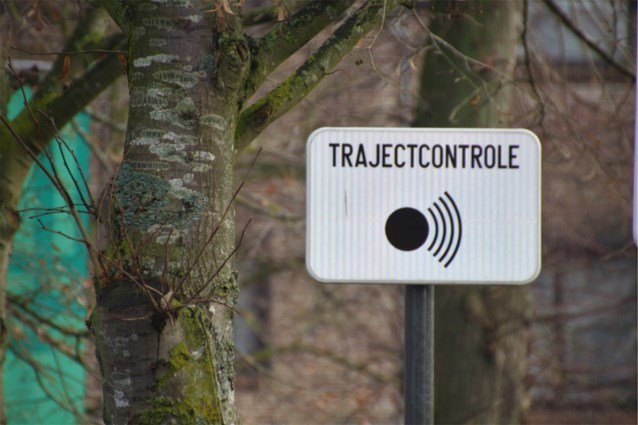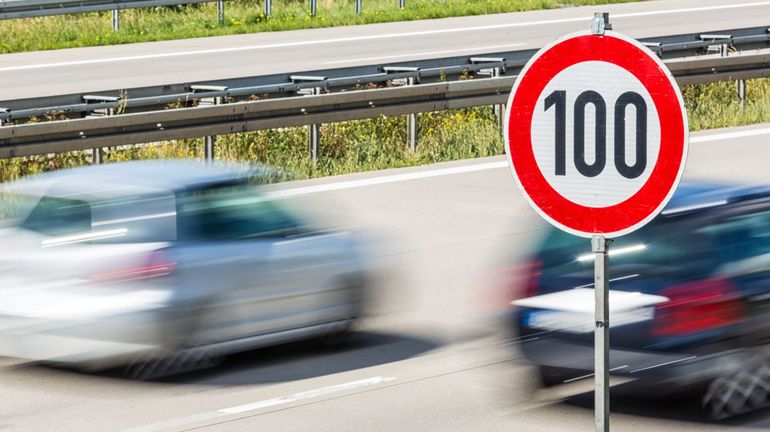The death toll on Belgian roads is one of the highest in the European Union, and for a long time, policies around speeding checks were further driving the risk of accidents. A pilot project, of which the results so far are promising, seeks to change this.
In 2019, 644 people were killed on Belgian roads, significantly more than in many other European countries. The federal government is looking to halve the number of road fatalities by 2030, but to do so, it must tackle excessive speeding, which is the reason behind one-third of fatal accidents.
However, two policies — tolerance margins and quotas — are currently implemented in various places across the country to control the inflow of offences and to avoid exceeding the processing capacity, which are having a negative effect on people's driving behaviour and limiting the effect of speed checks.
Average speed drops to 120 km/h
In Wallonia and Brussels, tolerance margins — an additional speed theshold considerably higher than the legally permitted speed is imposed for drawing up an official report — were in place.
In Flanders, quotas for speeding checks are in position, which limit the flow of speeding offenders to the police and the public prosecutor's office by limiting section controls to a minimum of two kilometres, which are not carried out regularly.

A sign marking the start of an average speed check zone. Credit: Belga
The first results of a pilot project showed that the abolition of both the tolerance margins and quotas resulted in the average corrected speed dropping by 10 km/h.
"By abolishing quotas and margins of tolerance, we can reduce the average speed on motorways from 130 km/h to 120 km/h. This alone is good for more than 20 million people," Justice Minister Vincent Van Quickenborne said.
"This indicates that at places where tolerance margins were applied, speeding is consistently practised."
Abolishing measures
In October, Van Quickenborne started a pilot project at seven locations to gradually phase both measures out to assess a number of effects of the measures, most importantly the effect on driving behaviour at these locations. The impact on processing capacity was also examined.
The tolerance margins were abolished for section controls on five motorways in the Walloon region — meaning people were already flashed when speeding at 129 km/h, up from 141 km/h. This lead to five times more speeding offences being detected.
Meanwhile, the quota on two Flemish motorways were lifted, meaning section controls now work permanently instead of only two weeks a month, doubling the chance of those burning the rubber being caught. The speed limit remained unchanged here.
Related News
- More than 1.66 million drivers in Flanders caught speeding in first half of 2021
- Lower maximum speed on motorways to 100 km/h, says Green Party
In total, approximately 30,000 extra fines were issued during the pilot project, however, according to Van Quickenborne, this increase is only temporary.
"We know from experience in other places that in less than a year, the number of offences detected returns to the old level because people adjust their driving behaviour and moderate their speed," he said.
Strengtening police and judiciary
Van Quickenborne now aims to abolish margins and quotas on all motorways by the summer. To process any extra files, the goverment is working to create a national public prosecutor's office for traffic safety and strengthen police zones within the framework of a broader investment in road safety.
"The number of fatalities and serious injuries on our roads must be further reduced. This is possible if we work together. That is why both the judiciary and the police are making this a priority," Home Affairs Minister Annelies Verlinden said.
"By deploying section controls and increasing the capacity of the Federal Road Police, we can intervene more quickly and punish speeders more effectively. This approach must accelerate the necessary change in mentality," she concluded.

